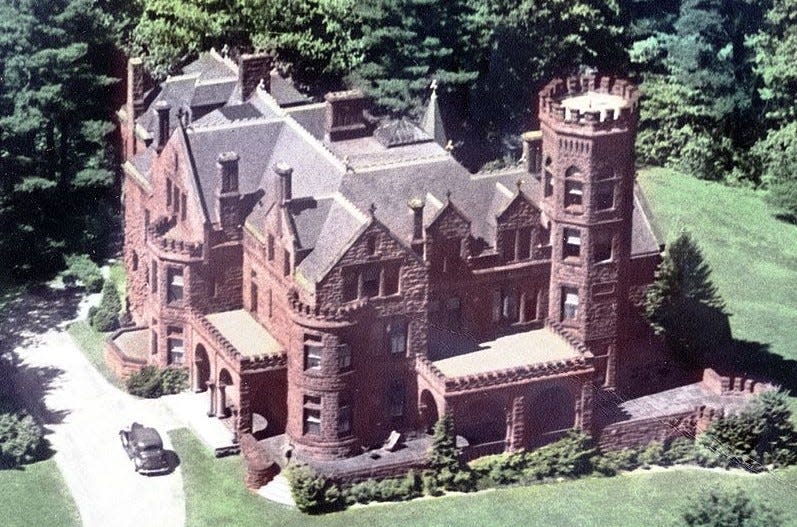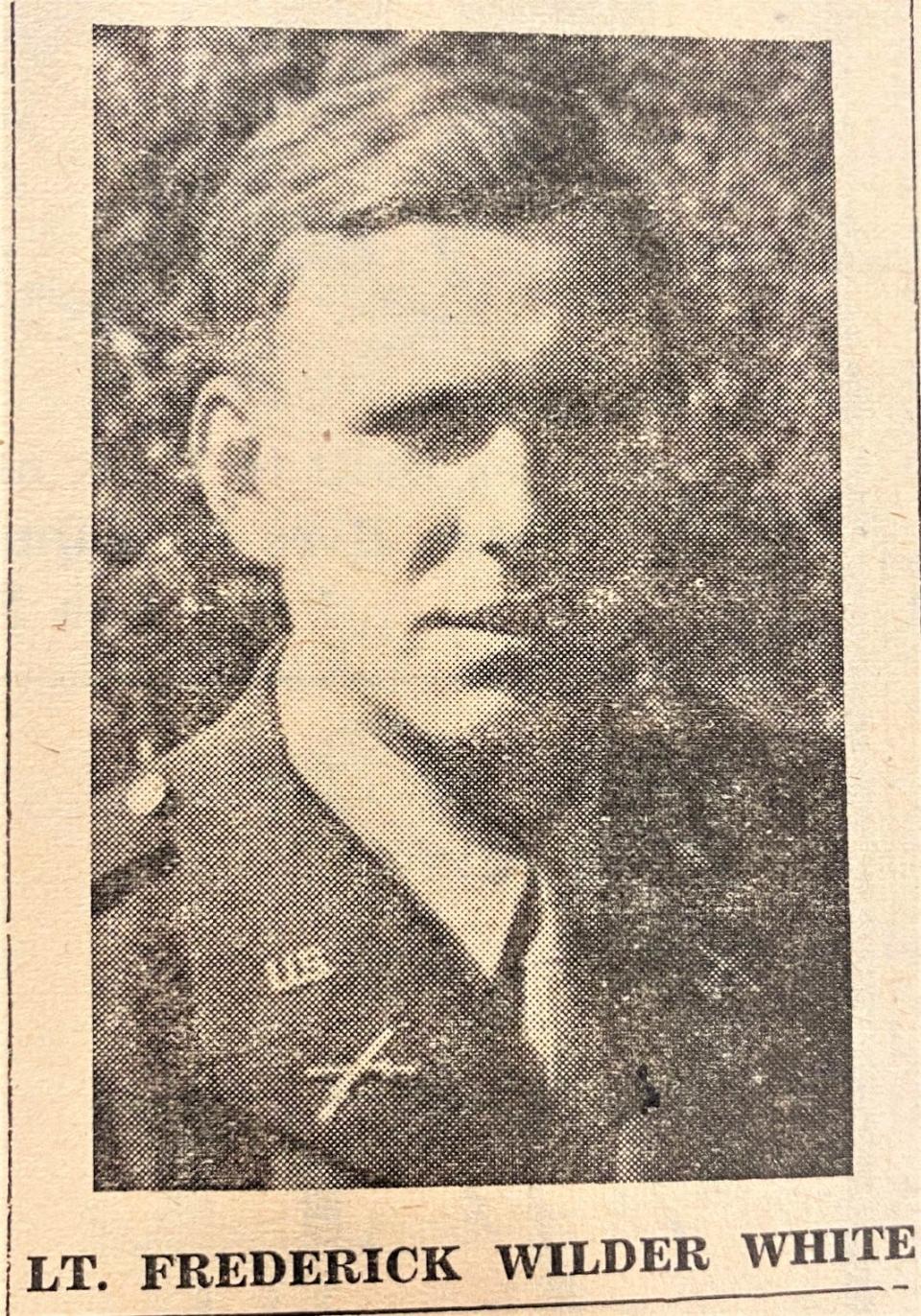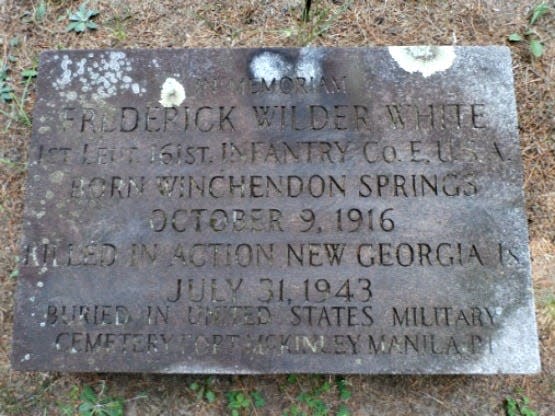Remembering Local World War II Heroes: Frederick W. White chose service over deferment
WINCHENDON – If there was such an individual who could be termed living a life of privilege, it could very well have been Frederick Wilder White, whose family had a long and distinguished history with the town of Winchendon.
His great-grandfather Joseph White and grandfather Nelson David White came to Winchendon in 1844 and would establish the Nelson Mills in the area of Winchendon Springs and Glenallen. The company manufactured colored cotton goods, selling their products throughout the country and the world.
His father, Joseph Nelson Jr., became an official with White Bros. of Winchendon Springs. The family lived in the magnificent Marchmont mansion, a grandiose landmark which was located in Winchendon Springs and was well-known as “The White Castle.”

Unfortunately, the family would also experience its share of tragedy when Joseph’s brother Percival Wayland White and his son Richard were both lost on the maiden voyage of the Titanic in 1912.
Then, Joseph Nelson Jr. died in 1939 at the age of 57 while his son Frederick was away attending Yale University.
Frederick, who attended some of the most prestigious boarding schools, could have possibly considered receiving a military deferment, but he was not that type of individual.
At the age of 27, he would wind up losing his life in the service of his country, becoming the first Winchendon soldier to die in active combat.
This is the continuation of the series Remembering Local World War II Heroes.
Lt. Frederick W. White (1916-1943)
Frederick Wilder White was born on Oct. 9, 1916 in Winchendon Springs, to Joseph Nelson Jr. and Rebecca (Wilder) White.
He attended the Fay School in Southborough, the Choate School at Wallingford, Connecticut, and went on to graduate from Yale University with the Class of 1938. At Yale, he was a member of the DKE fraternity and was also an accomplished pianist, being greatly interested in music. He also played hockey and football, and enjoyed horseback riding and golf.

White later attended Harvard Law School where he was enrolled in the Class of 1941, but left school in 1940 to take employment at the Chrysler Corporation in Detroit in the engineering department. From there he was inducted into the Army in June 1941 at Fort Custer, Michigan, being assigned to the Infantry.
His basic training was received at Camp Wolters, Texas where he spent three months before his attachment to the 32nd Division, 126th Infantry for maneuvers in Louisiana.
In March 1942, Cpl. White was accepted for Officers Training School and sent to the infantry school at Fort Benning, Georgia. He was commissioned Second Lieutenant in June 1942, then stationed for several weeks at Camp Roberts, California and later at Camp Stoneman, California.
Lt. White left the United States in August 1942 for the mid-Pacific area, being with the 25th Division. His outfit replaced the Marines on Guadalcanal in the fall where he experienced his first active combat duty. For about nine months, he served on Guadalcanal, where he received promotion to the rank of First Lieutenant.
At Guadalcanal, Lt. White was assigned to a Headquarters Company. After several weeks he applied for transfer as a line officer and the request was granted.

He took part in an engagement at the Solomon Islands in the Pacific area. It was in this capacity that he was killed while in action.
On July 31, 1943, Lt. White was acting as commander of his company, leading them into an area near New Georgia Island occupied by the Japanese forces.
Suddenly, a shot by a Japanese sniper rang out and White was killed instantly. He was buried shortly thereafter, in the United States Military Cemetery, Fort McKinley in Manila, with services conducted by the regimental chaplain.
A letter sent to his mother and dated Oct. 18, 1943 from the Colonel commanding the 161st infantry stated, “Your son was a capable officer and a fine man. He was well thought of by all of our regiment. I wish you to know that we knew your son and will remember him well and will always consider him as with us in spirit. We will take inspiration and strength from his gallant sacrifice.”
In addition to his mother, who relocated to Cambridge after her husband’s death, he was also survived by his brother Joseph N. White III of Winchendon and three sisters, Rebecca, Priscilla and Elaine White, all of Cambridge.
His name is listed on a memorial stone at family plot in Riverside Cemetery.
Comments and suggestions for Remembering Local World War II Heroes can be sent to Mike Richard at mikerichard0725@gmail.com or in writing to Mike Richard, 92 Boardley Road, Sandwich, MA 02563.
This article originally appeared on Gardner News: Remembering Local WWII Heroes: Frederick White of Winchendon

